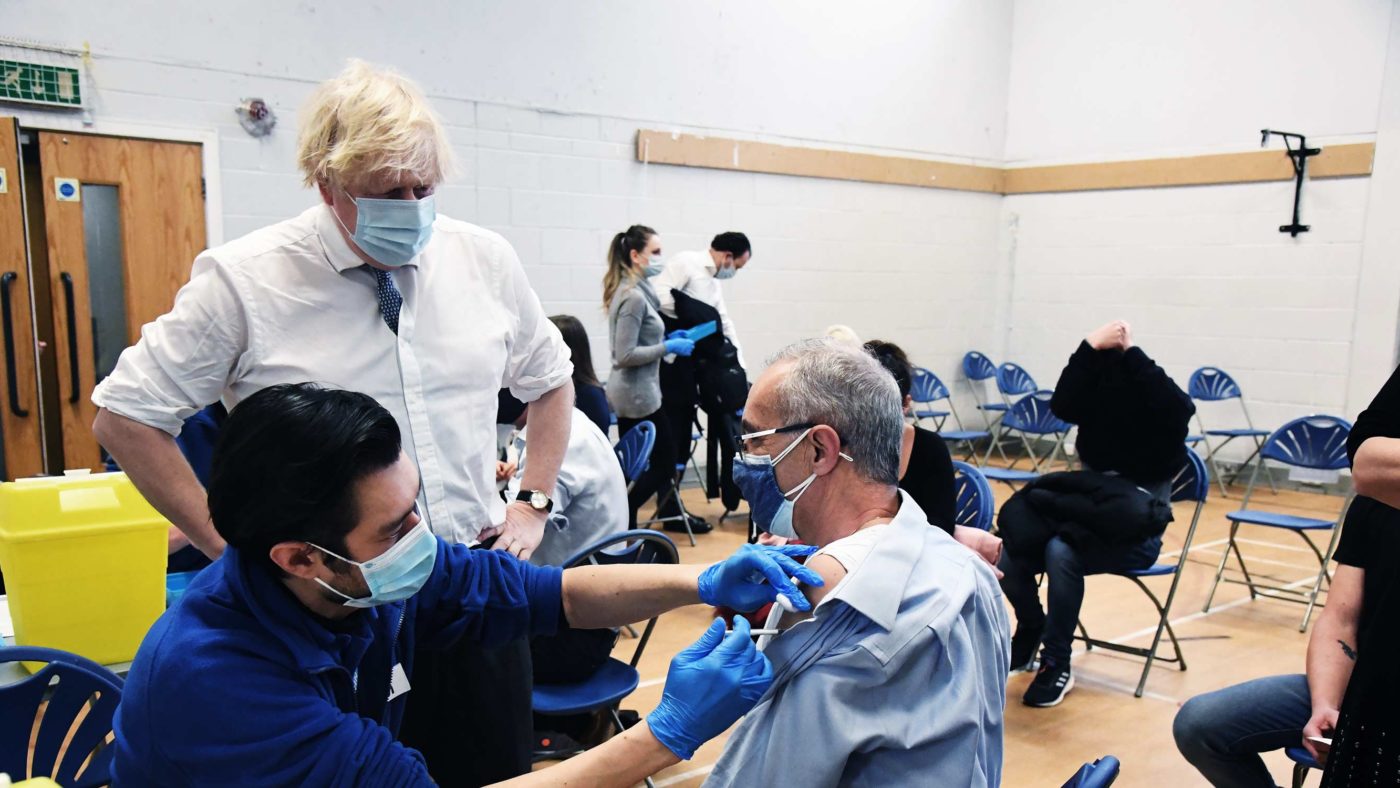With the prime minister last night urging the British people to get boosted in preparation for a ‘tidal wave’ of Omicron infections, there is a social virus that needs to be addressed – the vilification of the unvaccinated.
There have been a number of astonishingly disparaging pieces authored in recent days on this topic. Writing for The Daily Mail, veteran broadcaster Andrew Neil said it was ‘time to punish Britain’s five million refuseniks…who through fear, ignorance, irresponsibility or sheer stupidity refuse to be jabbed’. Then there was Lady Karren Brady’s column in The Sun, which called for the UK to force ‘vaccine refuseniks’ to live a far more difficult, inconvenient and restricted life.
Let’s be clear, no matter how seriously you take stopping the virus, this kind of bullying authoritarianism has no place in a liberal democracy. The same goes for the introduction of mandatory vaccinations, which we are starting to see on the continent.
Though it’s easy to typecast the vaccine hesitant as tinfoil hat lunatics hoovering up disinformation on social media, the reality is far more nuanced. As this site’s editor wrote in a piece before the pandemic, hardcore anti-vaxxers are actually only a small minority – far more people fall into the far softer ‘hesitant’ category. It is the far more understandable reasons for hesitancy or uncertainty which are being completely ignored by most of the British political establishment.
Among the most hesitant people, for instance, are pregnant women. As Alys Denby noted in a recent piece, the Royal College of Obstetricians and Gynaecologists estimates that just over 10% of pregnant women in England had been fully vaccinated by the end of August, compared with 74% of the general population. That’s entirely unsurprising, given that as recently as April only pregnant women who are ‘clinically extremely vulnerable’ were advised to even consider getting the jab.
The confusion over whether the vaccine is safe for pregnant women has had a broader effect too. According to ONS data from last spring, around one in three women who were reluctant to take the vaccine said they were worried about its impact on fertility. Rather than vilifying family-orientated women, many of whom have put in an enormous effort working in the health and social care sectors during the pandemic, surely it would be better to persuade and reassure them about the vaccine’s safety through inclusive and understanding forms of engagement?
Another factor behind vaccine hesitancy is institutional distrust, especially among Britain’s ethnic minorities. A survey from January 2021 found that around three in ten black Brits believed that their racial group had been treated unfairly by the NHS during the pandemic. Unsurprisingly, this distrust has manifested itself in a relatively low uptake of the vaccine. From 8 December 2020 to 12 April 2021, while 93.7% of white British people over the age of 50 had received their first vaccine dose, the corresponding figure for people of Black Caribbean origin was only 66.8% – the lowest out of all ethnicities. The second-lowest vaccination rate was among people of Black African origin – 71.2%.
Again, it’s hardly a huge surprise. Black Caribbean communities have often been treated appallingly by our public institutions. The Metropolitan Police’s spying on Stephen Lawrence’s family after his racist murder in April 1993 was particularly damaging. More recently, the Windrush scandal remains a festering sore, with the vast majority of the victims uncompensated for the misery they suffered because of the British state. This has fundamentally undermined trust in public institutions among British Black Caribbean communities, which in turn is likely to have fed into relatively low levels of vaccine uptake.
As well as being cruel, lambasting people who have understandable anxieties is completely counter-productive. There’s a dense literature and plenty of material for clinicians on how to talk to people who are hesitant to take vaccines, and very little of it involves calling them ‘stupid’ or ‘selfish’. Indeed, doing so is only more likely to reinforce the sense of ‘them and us’, perpetuating hesitancy and feeding into the hardcore anti-vaxxers’ toxic narrative.
Consent, not coercion, must be at the heart of our vaccination strategy – and a vaccine mandate of any kind would be little more than an admission of failure on the part of authorities who have not done enough to reach out to those with concerns. A mandate would also risk further undermining the already fraught relationship between the British state and many of its citizens – especially among younger women and certain ethnic minorities. We must oppose all measures that run the risk of exacerbating existing forms of institutional distrust in modern-day Britain.
Click here to subscribe to our daily briefing – the best pieces from CapX and across the web.
CapX depends on the generosity of its readers. If you value what we do, please consider making a donation.


